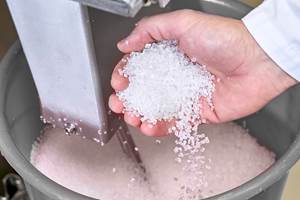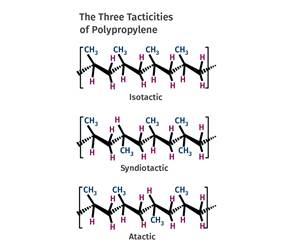IHS Markit Sees Sustainability as Key to Global Plastics’ Future
As global plastics demand expands rapidly, industry transitions from a linear (take-make-dispose) economy to a circular economy (recover-innovate-reuse).
At the PEPP 2018: Polyethylene and Polypropylene Chain Global Technology and Business Forum, the 26th year of this event, organized by Houston-based IHS Markit, the focus is on sustainability being key to the future of the plastics industry.
This year’s June-26-28 event in Düsseldorf, Germany, will feature a host of chemical and plastics industry leaders representing the plastics value chain—from resin suppliers, to processors and brand owners, as well as others involved in recycling and reuse, who will address the issue of sustainability, as the industry moves toward a circular economy mindset.
Policy makers and influencers on the agenda include the World Plastics Council and PlasticsEurope; resin producers Borealis, LyondellBasell and SABIC; major converters including Amcor and Constantia; as well as brand owners: Coca-Cola and Nestle S.A.
“As announcements of additional capacity and images of plastic pollution share the headlines globally, the need for differential and sustainable plastic industry is emerging. The transition from a linear (take-make-dispose) economy to a circular economy (recover-innovate-reuse), represents a shift to ensure industry sustainability and value creation,” says Nick Vafiadis, v.p. of plastics for IHS Markit.
According to IHS Markit, the global demand for the world’s most used plastic—PE, has nearly doubled since 1999. However, new analysis indicated this demand growth is being met with significant new market pressures that threaten the future of plastics demand growth, including a rise in consumer expectations regarding sustainability, and more stringent environmental regulations in key growth markets such as China
Says Vafiadis, “As more consumers in developing countries such as China and India increase their spending power and join the global economy, we are witnessing truly phenomenal growth in demand for the key plastics that are critical to so many of the products and life essentials we rely on every day, such as cell phones, computers, food and beverage packaging, clothes, cars and even life-saving medical devices…..That consumption growth, though, comes with greater expectations and responsibility, both for plastics producers and consumers. We at IHS Markit are focused on how producers and consumers can work together to address the issues of sustainability and management of plastics recycling, reuse, or waste reduction. This issue is top of mind for plastics industry’s leaders.”
Here’s a glimpse of some of the highlighted speakers:
- Jim Seward, World Plastics Council and v.p. of joint venture and international business at LyondellBasell, will examine the role of plastics in the 21st century.
- Karl Foerster, executive director of PlasticsEurope, will address increasing environmental sustainability requirements, including the new European policy to move to 55% recycled content by 2025, and how those changes will impact the plastics industry.
- Andrea Landuzzi, global marketing director, technology solutions-polymer additives for Solvay, will discuss examples of how purpose-driven product development that leverages high-performance stabilizers can enable the polyolefins industry to become more economically and ecologically sustainable.
- Hartmut Siebert, technical marketing manager/packaging for Clariant Plastics & Coatings AG, and Sander Coster, group leader for packaging food safety at Nestle S.A., will discuss safety in food packaging.
- Izabella Lomacka, global procurement director, closures, labels and shrink film for the Coca-Cola Company, Cross-Enterprise Procurement Group, will discuss consumer packaging trends and sustainability.
- Catherine Malchaire, technical sales manager Europe, business unit polymer stabilizers Songwon International AG, will look at this dichotomy between consumer demand and market realities.
- Enrico Dolce, product development and sales manager, Fater AHP Recycling Business Unit will discuss turning waste into usable raw materials.
Related Content
Prices Up for All Volume Resins
First quarter was ending up with upward pricing, primarily due to higher feedstock costs and not supply/demand fundamentals.
Read MorePolyethylene Fundamentals – Part 4: Failed HDPE Case Study
Injection molders of small fuel tanks learned the hard way that a very small difference in density — 0.6% — could make a large difference in PE stress-crack resistance.
Read MoreFundamentals of Polyethylene – Part 5: Metallocenes
How the development of new catalysts—notably metallocenes—paved the way for the development of material grades never before possible.
Read MoreCommodity Resin Prices Flat to Lower
Major price correction looms for PP, and lower prices are projected for PE, PS, PVC and PET.
Read MoreRead Next
For PLASTICS' CEO Seaholm, NPE to Shine Light on Sustainability Successes
With advocacy, communication and sustainability as three main pillars, Seaholm leads a trade association to NPE that ‘is more active today than we have ever been.’
Read MorePeople 4.0 – How to Get Buy-In from Your Staff for Industry 4.0 Systems
Implementing a production monitoring system as the foundation of a ‘smart factory’ is about integrating people with new technology as much as it is about integrating machines and computers. Here are tips from a company that has gone through the process.
Read MoreMaking the Circular Economy a Reality
Driven by brand owner demands and new worldwide legislation, the entire supply chain is working toward the shift to circularity, with some evidence the circular economy has already begun.
Read More


























